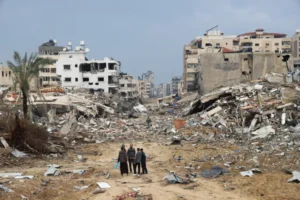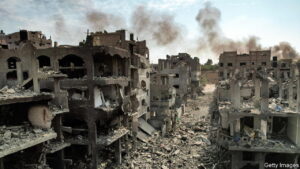Gaza and Rafah: The Struggle Against Oppression
The current ongoing struggle between Israel and Palestinian territories, especially in Gaza and Rafah, has attracted global concern because of the extreme humanitarian crisis and purported human rights abuses. The current situation is devastating, with massive loss of life and much destruction. However, despite a worldwide outcry, Gaza and Rafah still face a lot of pain, as many people feel that how the international community has handled this matter is not enough, nor is it fair.
The humanitarian crisis in Gaza and Rafah
Historical Context
The southern part of the Gaza Strip, namely Gaza and Rafah , is known for being a spot where conflicts between Israelis and Palestinians are often observed. Since 2005, when Israel relocated its troops from Gaza, people in Israel have stopped all means of transport there. As a result, many places have become inaccessible, making it hard for others, including children, to live.
The Scale of Suffering
The blockade and recurring military conflicts have resulted in catastrophic outcomes for the residents of Gaza and Rafah:
Casualties: Ever since hostilities started, tens of thousands of Palestinians have died. Recent statistics show that more than 15,000 Palestinians have perished through military operations and airstrikes within the Gaza Strip, including Rafah.
Destruction: The relentless bombardments have devastated infrastructure, including homes, schools, hospitals, and water facilities. This destruction has left many without access to necessities and shelter.
Displacement: Palestinians, numbering hundreds of thousands, have been forced into a condition where they have left their homes and are living with inadequate help.
Living Conditions
The blockade has created a severe economic and social crisis in Gaza and Rafah. The unemployment rate is one of the highest in the world, with over 50% of the population living below the poverty line. Access to healthcare is critically impaired, with shortages of medical supplies and electricity further exacerbating the situation.
Exploring the Significance of the North Korea and Russia Strategic Pact
International Response: A Deafening Silence
Despite the grave humanitarian crisis, the international response has been widely criticized as inadequate.
Lack of Intervention: What stops the rise of the blockage or negotiation of a stable peace are accusations met in disapproval of powerful global economies and international organizations emerging, particularly for that. The inactivity has therefore been interpreted as a silent endorsement of continued oppression.
Humanitarian Aid: Some forms of relief, though not enough, have also been forthcoming. The presence also complicates the work of humanitarian organizations because it does not give them an opportunity for rapid access to crucial supplies.
Diplomatic Efforts: Most diplomatic efforts have proved futile, as calls for ceasefires and peace talks have so far been ignored by many people. As a result, there has been almost no movement forward in the peace process, leading to a state of stagnation.

Voices of Anger and Despair
The situation in Gaza and Rafah has sparked widespread condemnation and anger globally, particularly from human rights organizations and activists.
Human Rights Violations: Many reports documented serious abuses of human rights, including attacks on civilians without regard to their condition, excessive use of violence, and collective penalties, by various groups, including Amnesty International and Human Rights Watch.
Voices of Activists: There has been a loud criticism of Israel’s actions by some well-known activists. They think that there is an imbalance between different sides’ power, and this has affected the Palestinian people heavily.
Public Opinion: In numerous parts of the world, especially in areas that support Palestine, people have censured Israel’s policies and deeds in Gaza and Rafah. Various negative comments and propositions for global intervention can be found on social media platforms.
Support Gaza: Donate Now to Provide Critical Aid and Rebuild Lives.
Conclusion: A Call for Action
One of the most immediate human rights crises today is the situation in Gaza and Rafah. The ongoing conflict, blockade, and insufficient international response have resulted in severe pain and fatalities. There is a need for the world to act now decisively to tackle the war’s root causes, stop the blockade, and give necessary aid to Palestinian people who are in pain.
With the eyes of the universe fixed on them, those individuals residing in Gaza and Rafah are still optimistic that one day they will have the opportunity to enjoy life without fear of any kind and also with dignity devoid of any oppression, thereby enabling them to live comfortably. This will effectively create permanent solutions that will bring real justice, which means a lot today between these two regions.
Pray for Gaza: May peace, strength, and hope prevail amidst the suffering.

3 thoughts on “Gaza and Rafah: The Struggle Against Oppression”